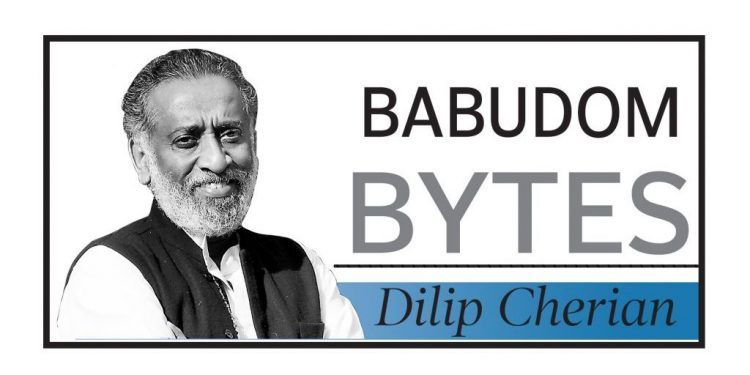Following the Pahalgam terror attack and the armed hostilities with Pakistan, India’s foreign policy messaging hasn’t exactly been ringing out with clarity. The External Affairs Minister S. Jaishankar, usually a sharp and assertive voice, has been strangely muted, especially in the government-mounted global outreach aimed at cornering Pakistan on the issue of sponsoring terrorism in India. Whether that’s strategic restraint or just a case of diplomatic laryngitis is up for debate. The proverbial cat may have got the EAM’s tongue, but the government wasn’t waiting around for a narrative vacuum to suck up the headlines. Instead, it’s gone full-on PR offensive — and this time, the talking heads aren’t all from the South Block.
Enter seven teams — a mixed bag of MPs and retired mandarins — dispatched across global capitals to explain, defend, and promote the official line. One team includes Rajya Sabha MPs Bhubaneswar Kalita and Milind Deora, along with Lok Sabha members Shashank Mani Tripathi and Ganti Harish Madhur. And leading this unusual diplomatic push is Shashi Tharoor — the flamboyant orator and foreign policy wonk, reminding the world that diplomacy can still be suave, sharp, and grammatically correct.
Tharoor’s handling of the situation starkly contrasted with the studied silences of EAM S. Jaishankar. Where Jaishankar’s style lately feels more cloistered, Tharoor has been making deliberate, articulate interventions — sending the message that India is not retreating from engagement, but rather, recalibrating its voice. And let’s not forget the presence of ex-US ambassador Taranjit Singh Sandhu in the mix — a seasoned hand with serious Washington clout.
This hybrid diplomatic offensive — part old-guard gravitas, part new-age outreach — suggests India is hedging its bets. If the traditional MEA megaphone isn’t enough, why not tap into Parliament’s polyglots and the retired IAS-IFS alumni club? One thing’s clear: the government is serious about controlling the narrative, even if it means letting a Congress MP like Tharoor steal the diplomatic spotlight.
Patent office shuffle
So, the DPIIT’s recent move to shuffle some patent office officers has stirred up a bit of noise, but this is your classic office squabble, not a full-blown crisis. According to insiders, this isn’t some dramatic transfer saga but more like an administrative reshuffle — the kind of thing that happens when teams try to juggle resources and responsibilities.
Sure, some folks aren’t thrilled about the changes. Nobody loves sudden moves, especially when you’re settled in and comfortable. But let’s not blow it out of proportion. This isn’t a “transfer,” per se — it’s more a strategic reallocation to keep things running smoothly. Think of it like a minor skirmish in the daily grind of bureaucracy, not a battleground clash.
What’s interesting, though, is how these little administrative moves can reveal the human side of government work — the frustrations, the adjustments, the tug-of-war between individual preferences and organizational needs. Isn’t that the story everywhere?
In the grand scheme, this episode is more of a ripple than a wave. The patent office continues to function, innovation keeps flowing, and the real battles — like patent law reforms or speeding up approvals — remain the bigger issues worth watching. So, no need to sound the alarms just yet; this shuffle is just another day at the office.
Himachal’s high-drama meltdown
What’s going on in Himachal Pradesh’s top cop circles feels less like law enforcement and more like a political thriller. The state’s police brass is locked in a public slugfest — and it all started with a suspicious death.
Vimal Negi, a senior HPPCL official, was found dead in Govind Sagar Lake in March. The case, handled by Shimla SP Sanjeev Gandhi, came under fire from the Himachal Pradesh High Court for going nowhere fast. Cue the CBI takeover.
But things truly blew up when SP Gandhi went rogue, accusing DGP Atul Verma of obstructing the probe, fudging court updates, and having staffers linked to a drug gang. Yes, seriously.
The DGP’s counter? Recommend Gandhi’s immediate suspension for “gross misconduct” and insubordination. Letters were fired off to top babus, complete with video evidence of Gandhi’s press outburst. This isn’t a mere turf war — it’s a collapse of institutional trust. When senior officers go public with allegations and countercharges, it reeks of dysfunction. And when that dysfunction involves a sensitive death investigation, it’s the public’s trust in justice that takes the hit.
Chief Minister Sukhu has welcomed the CBI probe, wisely keeping politics out, for now. But the damage is done. This episode calls for more than disciplinary action; it needs a hard look at how power, politics, and policing have gotten so tangled.
By Dilip Cherian






































